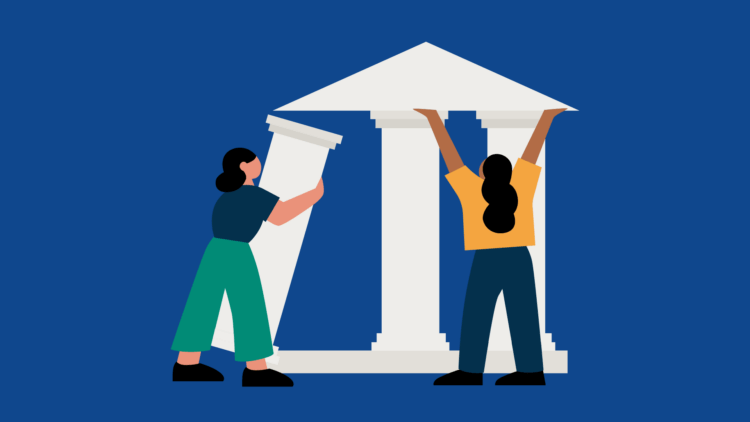New habits are hard to keep, and old ones are hard to break. Despite your best intentions, it’s easy to fall into old, underearning habits that don’t do you or your law firm any favors.
How can you break the cycle and make lasting improvements to your business? We asked Katie Wyka, Clio’s in-house Performance Coach, to share her thoughts on how lawyers can better eliminate underearning habits and set themselves up for success.
Below, we’ve put together some tips based on what she had to say:
Don’t depend on willpower alone
The pain of untracked billable hours or too much time spent on administrative work might drive you to make a New Year’s resolutions to eliminate underearning habits, but as Katie explains, that alone won’t be enough to motivate you to keep them.
“Changing habits is hard at the best of times. We have learned that people who have had a major heart attack have a very hard time changing their lifestyle after surgery,” Katie said. “It’s not about relying on willpower. It’s about setting up the structures around yourself differently, shifting your habits, and at the root of it all, thinking about yourself as a businessperson.”
Certainly, there are often tangible barriers to making big changes in any business. For example, those who responded to our December survey cited a lack of time and money as some of the main reasons they weren’t able to stick to their resolutions.
With willpower alone, these challenges may seem insurmountable. But by making fundamental changes to how you see yourself, how you behave, and what support systems you have around you, little by little, you’ll start to reach your goals.
For example, Chelsea Lambert has talked about the importance of firing yourself from jobs that rob your law firm of revenue. Katie believes that this might be easier for lawyers who prioritize business ownership as part of their identity.
“Solo or small firm practitioners may not want to let go of certain tasks because they may think they’re the only ones who can do them properly,” she said. “Or they may not want to spend money on outsourcing tasks or hiring someone else to do them. But if you’re running a business, those are necessary expenses. If I’m running a business that happens to be in the business of law, I’m going to think differently about how I use my time.”
Be prepared to make psychological, behavioral, and structural changes
As Katie explained, there’s a hierarchy of things that need to change in order to make lasting improvements to your life or business, and it all starts with how you think about yourself.
I think change starts at a psychological level. If the law is your first love, you may not think about yourself as a businessperson. But if you can shift that way of thinking about yourself—‘I’m running a business that happens to be in law’ versus simply ‘I’m a lawyer’—I think that can make a big difference in terms of what you’re willing to do differently in terms of your behavior and the structures you set up around yourself.
You may like these posts
Add to your identity
Changing the way you see yourself can be difficult, but Katie suggested a simple exercise that might help:
- List all the things that make up your identity. This might include your nationality, your place in your family, your values, the school you went to, your experience or expertise, and anything else you deem part of who you are.
- Try on something new: Add things like business owner, businessperson, or business professional to the list, and see if you can make some room for it.
Importantly, taking on “businessperson” as part of your identity does not mean you have to let go of being a lawyer: It just means you’re expanding how you think of yourself. It may open you up to making different decisions and taking new actions for your career and your business.
“It’s not an ‘either-or,’” she said. “It’s an ‘and.’ You are all of those things.”
In fact, running a profitable business will allow lawyers to focus more on practicing clients. Case in point: Clio customers Nicholas Hite and Shuaib Ahmed both run profitable firms and provide incredible client service.
Once you start to think of yourself as a lawyer and a businessperson, you’ll be that much more likely to eliminate habits that hurt your profits.
Change your habits with the power of deliberate practice
What do you do when you want to get better at something? You can listen to a podcast, attend a talk, or read a book, but what really works is making small shifts in your daily behaviors and getting feedback. This is also known as deliberate practice.
“When you’re learning to play the piano, you learn one thing and you practice it over and over and over again,” Katie explained. “Deliberate practice is breaking something down into smaller actions or skills and then working on them very purposefully. It’s taking a ‘micro’ approach. Just as in building muscle for weightlifting or improving dexterity for playing piano, it’s all about doing specific things, repeatedly over time and seeing the progress. It is the opposite of just hoping to change or being very haphazard with your practice.”
In other words, it’s important to be very specific about what you’re trying to improve. For the particular problem of low billable hours, setting a goal or aim of increasing daily billable hours from 2.3 to 4, makes it a real and measurable shift. (Hint: Clio has tools to help you set and track firm performance goals.)
For example, say you wanted to get better at running meetings. When you say “running a meeting,” what part of that are you trying to get better at? Maybe you’re great at making an agenda, but you’re not great at getting everyone to stick to it when the meeting goes off the rails. Your goal would be to get better at keeping meetings on track, and you’d need to have a specific action you’d plan on taking.
“When things go off the tracks, what do you do? What will you do every meeting to build that skill?” said Katie. “You might say, ‘I will stop the meeting, and I will say to people “We’re off track” and I will point to the agenda, and I will ask the next person on the agenda to start their piece. And I will have a parking lot for stuff that’s on people’s minds but is not on the agenda.”
In this case, you’d have an actionable strategy for improving the way you run meetings, and you’d be much more likely to actually make a change.
After a few weeks, you could ask for feedback from your colleagues and/or staff. Ask them how helpful your approach was, and if there is anything you could change.
Here are a few other habit shifts you may want to consider for a more profitable practice:
- Track time in the moment. If your goal is to track more of your billable hours, and you want to get better at recording or remembering what you worked when you enter your time at the end of the day, a solution could be to make time entries as you work, so that nothing gets forgotten. (Clio’s Timekeeper is easily accessible and lets you start time entries with the click of a button.)
- Ask for referrals. If you want to get more referrals, you may want to start asking every client to refer their friends or family to you each time a file closes. Katie suggests going so far as to know the exact phrase you’ll use when you ask. Alternatively, this may be something you’d want to consider automating as part of your client intake process.
Here, Katie emphasizes that persistence is key and that it might take months before you see the benefit of your change in behavior. “Here’s the thing about habit shifting: Nine times out of ten they might say ‘I have no one to refer to you.’ But you have to keep going,” Katie said. “You have to give it time to play out.”
Habits might be hard to stick to. But again, if you’re supporting your habit changes with a change in the way you see yourself—if you see yourself as a businessperson as well as a lawyer—you’ll be that much more likely to stick to your goals.
And, you’ll find it easier to invest in support systems to help you stick to your habits.
Add structures to support change
“Structurally speaking, change requires an investment,” said Katie. “It means thinking very differently about how you set yourself up, who you have as resources, and how you are delegating work.”
If you’re running a law firm, setting up the right structures to support yourself could mean a number of things. You may want to:
- Invest in a platform like Clio to make your time tracking, invoicing, and overall matter management more efficient.
- Use a service like Ruby Receptionists to delegate administrative work without hiring extra staff.
- Hire an associate, paralegal, assistant, or receptionist to take on tasks you’re currently responsible for at a lower cost.
- Automate administrative processes where possible.
- Streamline your client intake process to create a better experience for clients that requires less lift from you.
- Attend events such as the Clio Cloud Conference to get ideas for improving your practice.
- Assess your needs and consider using apps to make legal document management, expense tracking, legal research, or any number of other tasks easier.
In addition to adding tools and staff, Katie said that choosing an accountability buddy is an extremely helpful structural change to make.
“It can be as formal or informal as you want it to be,” she said. For example, if you work at a large firm, it could be a partner, superior, or a colleague. If you’re a solo practitioner, it could be your spouse, your neighbor, or a friend.
“Doing things on our own works in some instances, but habit shifts, and particularly habit shifts that are rooted deeply in the culture of a profession or an industry, require support,” Katie added.
With these structures in place, supported by behavioral changes and a fundamental shift in mindset, you’ll have much more than willpower to carry you through to a more efficient, profitable practice.
Know that change is possible
As some final motivation, Katie stressed the importance of persistence when attempting to make changes in one’s life, whether at work or elsewhere. It might seem hard at first, but in the end, your investment will pay off:
When you start something new, the lift required is huge. When you start running—the willpower to get up and do it, the pain of early days of running—the lift required at the beginning, it’s like a rocketship. There’s way more fuel required at the beginning. But if you know the first few weeks of any habit shift will be like this, you can plan and prepare for it—add ‘runner’ to your identity list, start running to work, find a running buddy, and set a goal (e.g., run 3 miles per week), and suddenly, you’re not just depending on willpower anymore.
And then as you figure some things out, as you learn things, as you try things, as you get into the practice of it, the lift goes down exponentially. So you have to give it a fair try.
We published this blog post in January 2018. Last updated: .
Categorized in: Business









